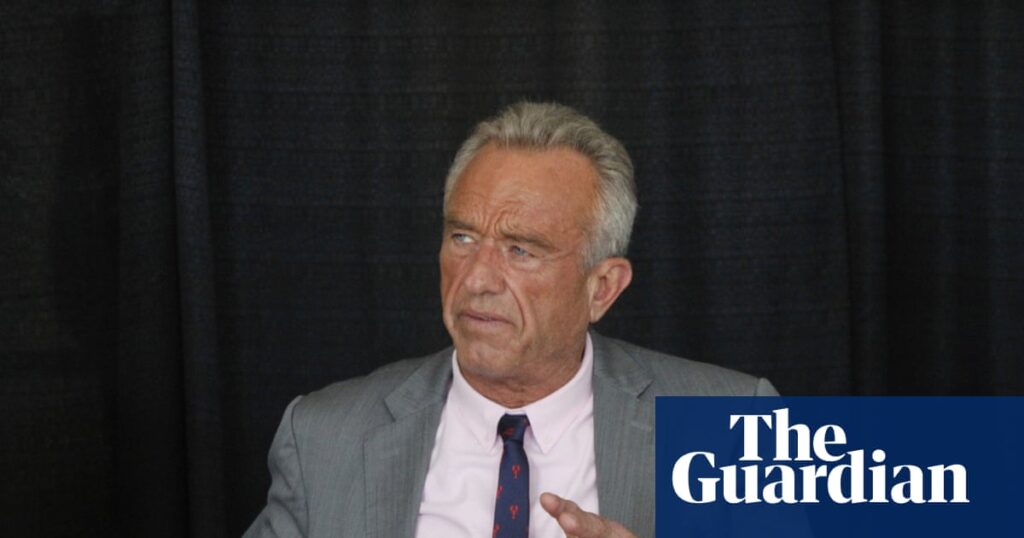The US Department of Health and Human Services said on Tuesday it would terminate 22 federal contracts for mRNA-based vaccines, questioning the safety of a technology credited with helping end the Covid pandemic and saving millions of lives.
The unit, Biomedical Advanced Research and Development Authority, helps companies develop medical supplies to address public health threats, and had provided billions of dollars for development of vaccines during the Covid-19 pandemic.
HHS said the wind-down includes cancellation of a contract awarded to Moderna for the late-stage development of its bird flu vaccine for humans and the right to purchase the shots, as previously reported in May.
The US health agency said it was also rejecting or canceling multiple pre-award solicitations, including proposals from Pfizer, Sanofi Pasteur, CSL Seqirus, Gritstone and others.
In total, the affected projects are worth “nearly $500 million”, the Department of Health and Human Services (HHS) said. Certain late-stage projects were excluded from the move “to preserve prior taxpayer investment”.
This is the latest development under US health secretary Robert F Kennedy Jr, a longtime vaccine skeptic who has been making sweeping changes to reshape vaccines, food and medicine policies.
“We reviewed the science, listened to the experts, and acted,” Kennedy said in a statement.
Kennedy said the HHS is terminating these programs because data show these vaccines “fail to protect effectively against upper respiratory infections like COVID and flu”, but did not offer scientific evidence.
“We’re shifting that funding toward safer, broader vaccine platforms that remain effective even as viruses mutate,” Kennedy said.
The controversial announcement came as Covid is currently on the rise again in the US and children will soon be returning to school from the summer break, while many Americans will be planning to seek fall booster shots for annual updated protection against Covid.
The risks of a fresh Covid wave are compounded by new vaccine restrictions from the Trump administration.
“If you’re vaccinated against Covid-19, you’re less likely to get infected,” Andrew Pekosz, a virologist at Johns Hopkins University, said, before the latest announcement from the health secretary on Tuesday evening.
Take-up of Covid boosters has already been relatively low.
“We haven’t gotten a lot of people vaccinated for the past few years, and with the current recommendations changing, it’s even less likely,” Pekosz said.
HHS on Tuesday said the latest decision follows a comprehensive review of mRNA-related investments initiated during the Covid-19 public health emergency.
Peter Hotez, a pediatrician who directs the Center for Vaccine Development at Texas Children’s Hospital, criticized the HHS announcement on Tuesday.
It will “promote their pseudoscience agenda and weaken our nation’s biosecurity”, he said to CNN.
“The mRNA technology, like all biotechnologies, has strengths and weaknesses, but for a pandemic situation with a new and previously unknown pathogen, or for cancer vaccines and immunotherapeutics it has distinct advantages. HHS under Mr Kennedy is telling us that we should no longer look to the federal government for innovation in biomedicine. The states are on their own,” he added.
Since taking office, Kennedy, who spent two decades sowing misinformation around immunization, has overseen a major overhaul of US health policy – firing, for example, a panel of vaccine experts that advise the government and replacing them with his own appointees.
In its first meeting, the new panel promptly voted to ban a longstanding vaccine preservative targeted by the anti-vaccine movement, despite its strong safety record.
He has also ordered a sweeping new study on the long-debunked link between vaccines and autism.
Unlike traditional vaccines, which often use weakened or inactivated forms of the target virus or bacteria, mRNA shots deliver genetic instructions into the host’s cells, prompting them to produce a harmless decoy of the pathogen and train the immune system to fight the real thing.
Though in development for decades, mRNA vaccines were propelled from lab benches to widespread use through Donald Trump’s Operation Warp Speed – a public-private partnership led by Barda that poured billions into companies to accelerate development.
The technology’s pioneers, Katalin Karikó and Drew Weissman, were awarded the 2023 Nobel prize in medicine for their work contributing “to the unprecedented rate of vaccine development during one of the greatest threats to human health in modern times”
The Associated Press and Reuters contributed reporting

